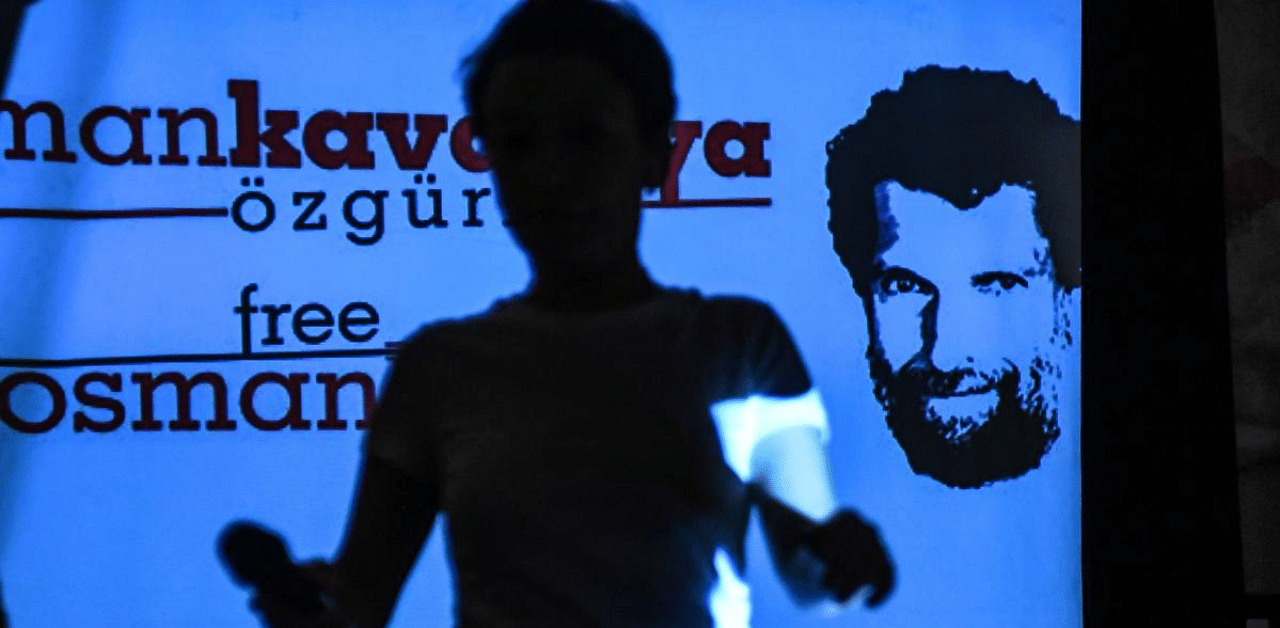
A top Turkish court on Tuesday sanctioned rights defender Osman Kavala's three-year detention without a conviction in a case watched closely for signs of a political thawing under President Recep Tayyip Erdogan.
A respected figure in international circles, the 63-year-old patron of culture and the arts has remained in prison despite being acquitted in February in connection with 2013 anti-government protests.
Before he could walk free, he was immediately re-arrested and jailed on fresh charges of espionage and involvement in a failed 2016 coup against Erdogan.
The next hearing is scheduled for February 5 of next year.
The Constitutional Court ruled by an 8-7 margin that Kavala's continued detention did not violate his rights to liberty and security, a court spokesman told AFP.
The formal reasoning for the ruling is expected to be published in one or two months.
Amnesty International's senior Turkey campaigner Milena Buyum called it "a shameful day that brings a dark cloud over Turkey's beleaguered judiciary and highlights its lack of independence".
The narrow majority ruling "exposes once more the politically motivated nature of Osman Kavala's ongoing, arbitrary imprisonment," she told AFP.
Kavala was a founding member of philanthropist George Soros' Open Society Foundation in Turkey and headed Anadolu Kultur -- a group that promoted cross-cultural ties through the arts at the time of his arrest.
In a court appearance this month, Kavala rejected the charges, telling the presiding judge: "I have opposed military coups my entire life and have criticised the army's interference in politics."
Critics are increasingly worried over the wider practise of arbitrary detentions and abusive prosecutions of journalists, lawyers and the government's political foes, which have further complicated Turkey's ties with the EU.
Emma Sinclair-Webb of Human Rights Watch called Tuesday's ruling "another nail in (the court's) own coffin" that came in "flagrant disregard" for the European Court of Human Rights' (ECHR) order to release Kavala in December 2019.
"Serving political masters gets you further than worrying about law in Turkey," she told the court's judges on Twitter.
Turkey is bound by ECHR rulings but has repeatedly ignored them under Erdogan.
Kavala would be sentenced to life in prison if convicted of trying to overthrow the constitutional order. The espionage charge carries an additional 20 years in jail.
Although he has never run for public office, the Parisian-born businessman appears to have drawn the personal wrath of Erdogan.
The Turkish leader branded Kavala the "red Soros of Turkey" a few days after he was first detained upon landing in an Istanbul airport from Gaziantep in the southeast in October 2017.
In a bid to repair Turkey's global image in the middle of a deep economic downturn, Erdogan last month pledged to push through judicial reforms that secured broader independence of the courts.
But he also took aim at Kavala, saying he was responsible for the 2013 unrest -- even after being cleared of involvement in court.
"We can never be with financiers of the Gezi events," Erdogan said, referring to demonstrations against plans to demolish a park in the heart of Istanbul that snowballed into nationwide protests.
"We can never be with Kavalas," Erdogan said.
US academic Henri Barkey is being tried in absentia alongside Kavala in the new trial.
The accusations against Barkey stem from a conference he organised about Iran on an island off Istanbul at the time of the 2016 coup attempt.
The charge sheet alleges Barkey used the event as cover to coordinate the putsch with Kavala.
Barkey told AFP this month that the charges against him were "a travesty of the first order".